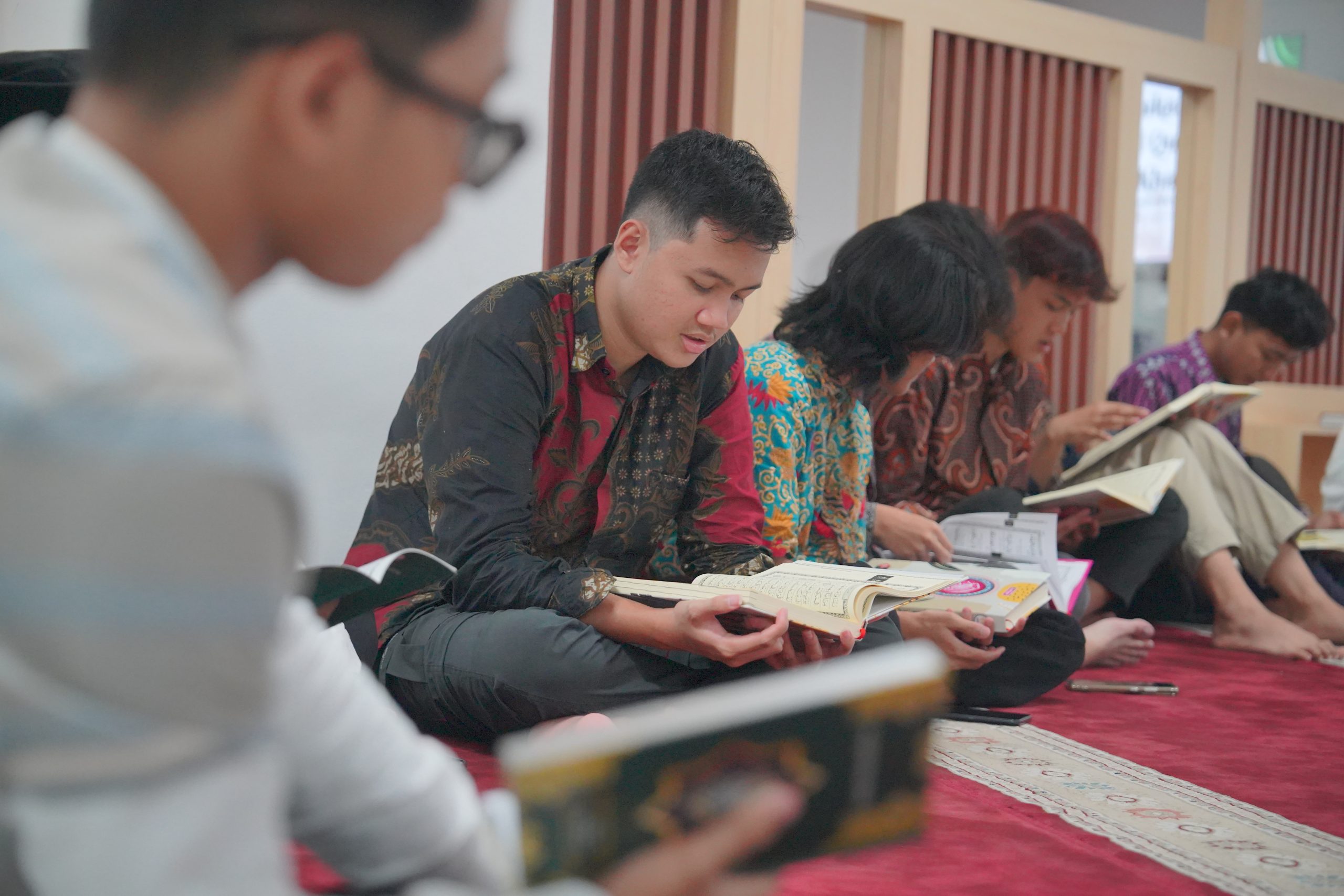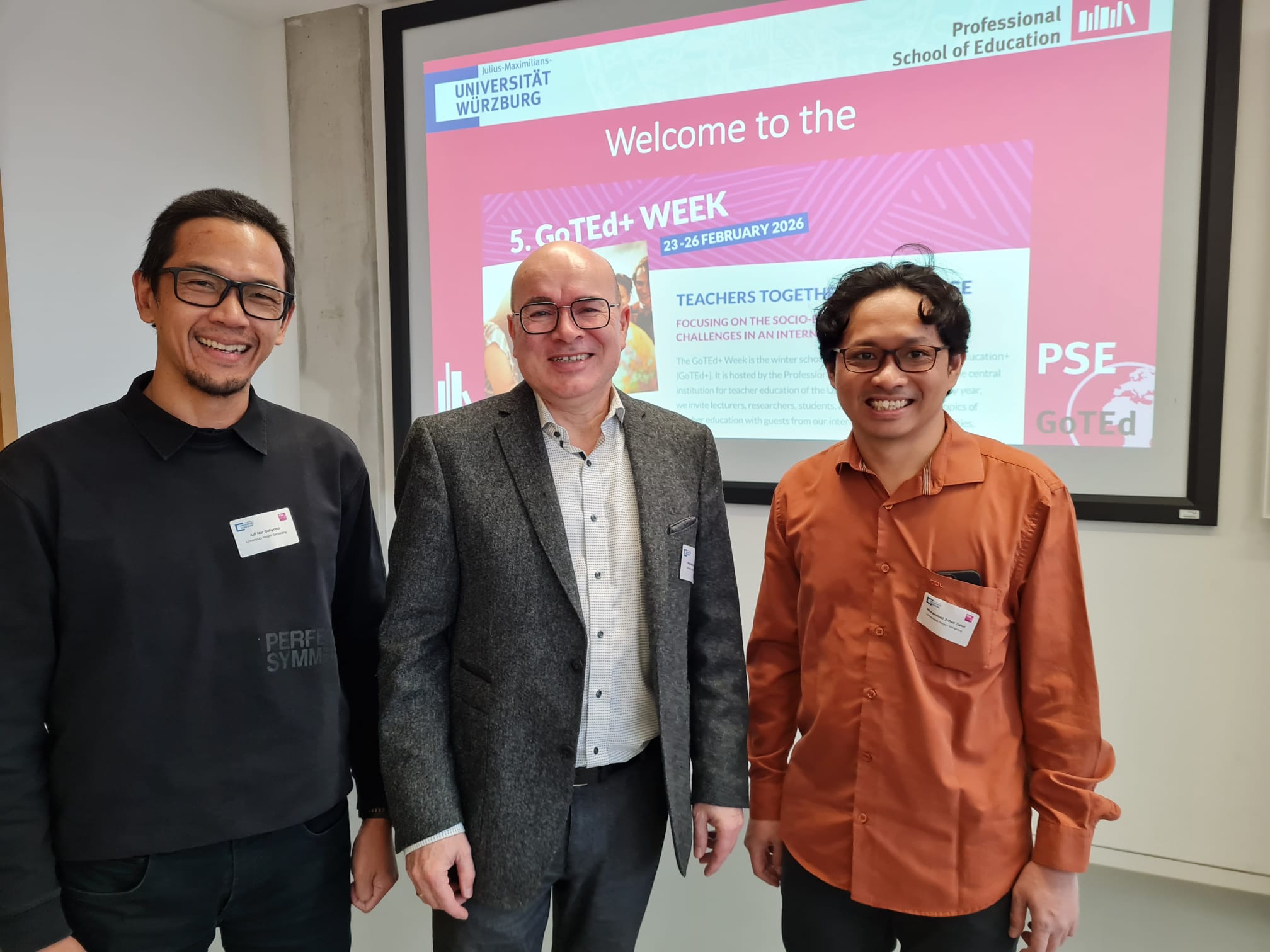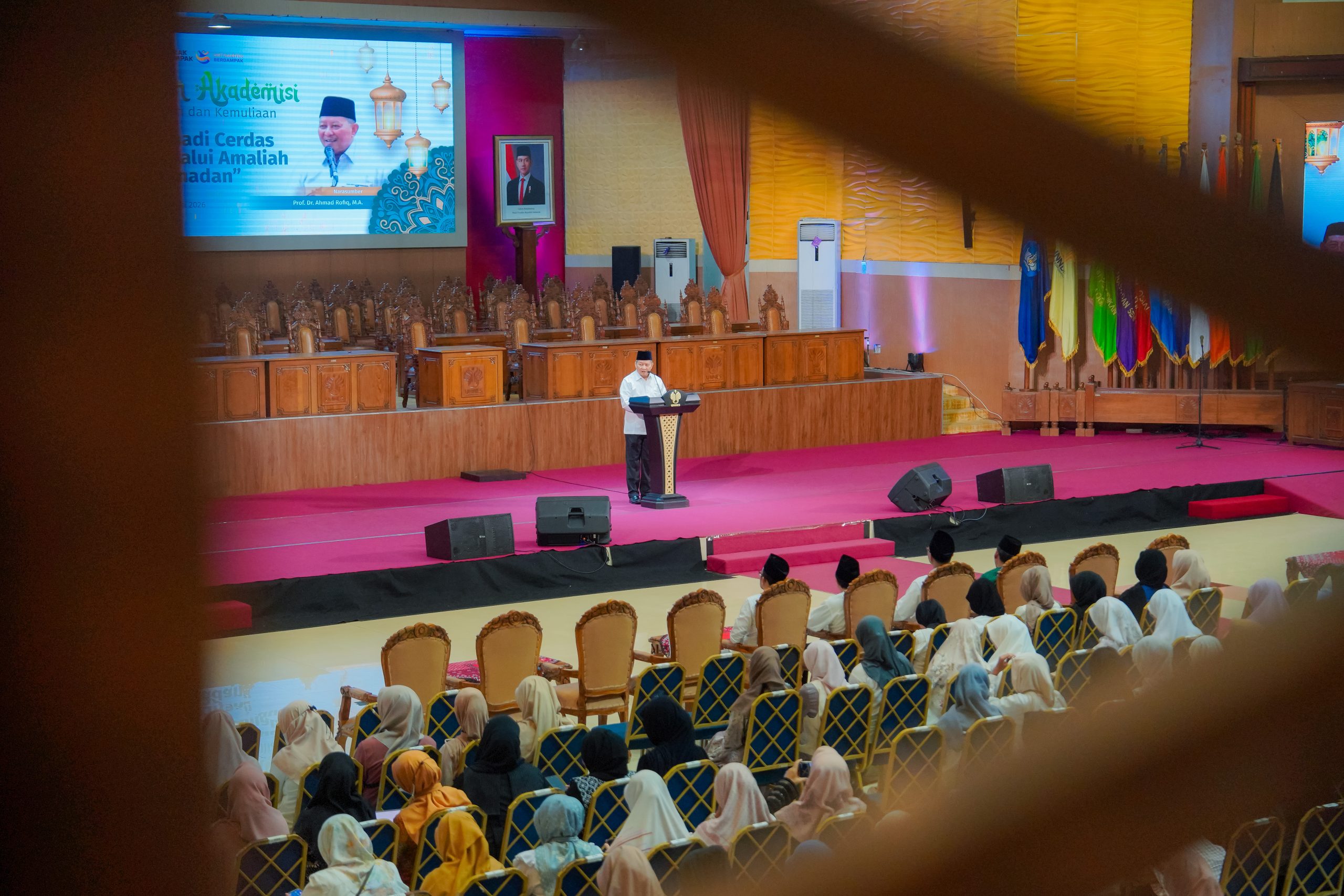Pandemi Virus Covid 19 telah membuat perilaku kehidupan di segala aspek berubah dari kebiasaan normal yang ada. Hal ini termasuk bagi para budayawan dan seniman yang mau tidak mau harus dapat beradaptasi dan berkawan dengan tatanan kehidupan baru atau New Normal.
Hal ini yang mendasari Fakultas Bahasa dan Seni (FBS) Universitas Negeri Semarang menyelenggarakan seminar secara online melalui aplikasi zoom dengan tema “Fenomena dan Tantangan Bahasa dan Seni Pasca Pandemi” pada Kamis (6/8).
Hadir secara virtual, Rektor UNNES Prof Dr Fathur Rokhman MHum yang memberikan Keynote Speech dan dilanjutkan dengan penyampaian materi oleh Kepala Badan Pengembangan dan Pembinaan Bahasa Kemdikbud RI Prof Endang Aminudin Aziz PhD dan Direktur Jenderal Kebudayaan Kemdikbud RI Hilmar Farid PhD.
Dalam kegiatan yang dimoderatori oleh Plt Wakil Rektor Bidang Perencanaan dan Kerjasama Dr Hendi Pratama SPd MA ini, Rektor UNNES menyampaikan pentingnya kemampuan untuk beradaptasi dan menyesuaikan diri dengan perubahan lingkungan.
“Adaptasi kebiasaan baru telah masuk ke semua aspek kehidupan yang ada. Di era pandemi covid-19 ini, UNNES mengadaptasi kebiasaan baru dengan cepat melalui program TSR kampus yakni tingkatkan imunitas tubuh, sering cuci tangan dengan menggunakan sabun, dan rajin berolahraga dan berdoa,” jelas Profesor bidang Sosiolinguistik tersebut.
Selain itu, imbuhnya, itikad baik UNNES dalam mencegah penyebaran wabah covid-19 juga ditunjukkan melalui penyelenggaraan program KKN BMC (Bersama Melawan Covid), intensifikasi WFH (Work from Home) kepada warga UNNES dan pelaksanaan rapid test bagi pimpinan, dosen, dan tenaga kependidikan.
“Jadi banyak sekali adaptasi yang diperlukan termasuk dalam hal kebahasaan. New normal akan menjadi sebuah kebiasaan yang juga memengaruhi pola bahasa yang ada, sehingga seminar ini diharapkan dapat memberikan gambaran bagaimana fenomena dan tantangan bahasa dan seni pasca pandemi nantinya,” pungkas Prof Fathur.
Kemunculan Bahasa Baru
Penyampaian materi yang pertama oleh Kepala Badan Pengembangan dan Pembinaan Bahasa Kemdikbud RI Prof Endang Aminudin Aziz PhD yang menjelaskan tentang munculnya banyak bahasa baru di era pandemi ini.
“Sebagai contoh adanya istilah lockdown yang kemudian dituliskan menjadi lauk daun, ada juga yang menuliskannya menjadi download” jelas Prof Aminudin.
Sementara itu, Direktur Jenderal Kebudayaan Kemdikbud RI Hilmar Farid PhD menjelaskan tentang pentingnya memberikan perhatian pada sektor bahasa dan seni pasca pandemi covid-19 terutama terkait dengan upaya pemulihan ekonomi.
“Pemulihan ekonomi itu harus ditunjang oleh pemulihan pada sektor-sektor lainnya, termasuk sektor bahasa, seni, dan budaya. Sektor ini seharusnya juga menjadi prioritas yang harus diperhitungkan secara serius oleh pemerintah,” jelas Hilmar Farid PhD.
Menurutnya, saat ini Indonesia seharusnya tidak hanya bergantung pada sektor-sektor konvensional semata, tetapi juga perlu menumbuhkembangkan sektor lainnya. Selain itu, penting juga untuk mengoptimalkan kemajuan teknologi dan informasi sehingga tercipta proses digitalisasi yang berdampak pada pertumbuhan ekonomi.
Webinar dilanjutkan dengan sesi tanya jawab oleh para peserta. Melalui kegiatan ini tercipta ruang diskusi ilmiah yang memungkinkan terjadinya transfer value dan transfer knowledge antara peserta dan narasumber.
Sebagai Perguruan Tinggi Lembaga Pendidikan Tenaga Kependidikan (LPTK), UNNES menjadi salah satu episentrum pengembangan pendidikan yang berkomitmen dalam memfasilitasi terjadinya proses transfer value dan transfer knowledge.
Pada masa pandemi saat ini, UNNES turut mendorong upaya memerangi wabah covid-19 melalui implementasi kebijakan belajar dari rumah sesuai arahan dari Kementerian Pendidikan dan Kebudayaan (Kemdikbud).



